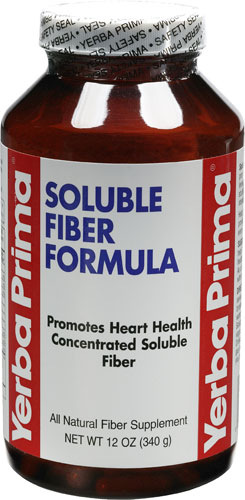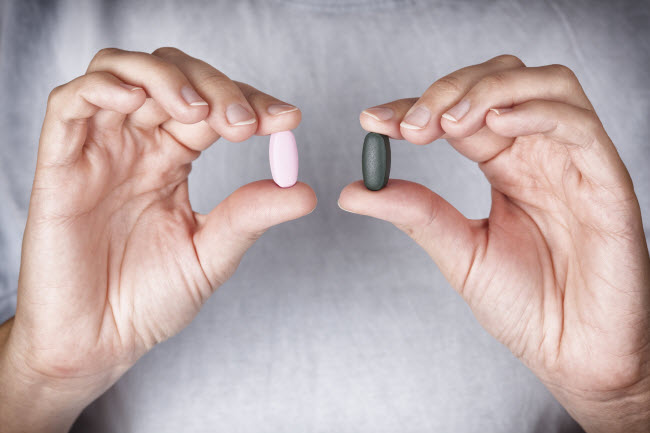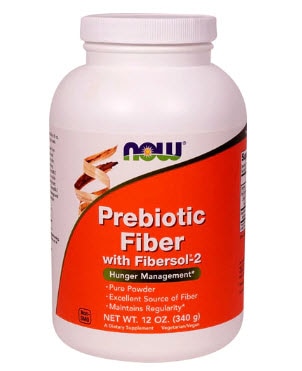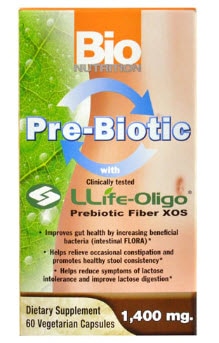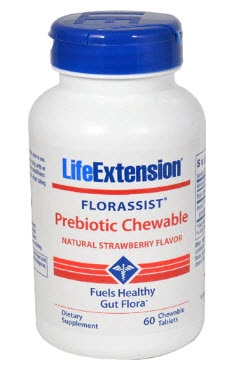Probiotics hog the limelight, but behind every successful probiotic there is a great prebiotic. In a nutshell, probiotics are valuable bacteria, while prebiotics supply the food for these bacteria. While research is still emerging about the benefits of prebiotics, adding more prebiotics to your diet does no harm, and can give you a happier gut. Granted it can get confusing, especially because the two categories sound so similar. Here’s everything you need to know about the difference.
Prebiotics vs. probiotics
Prebiotics are a type of fiber that the human body cannot digest. Both prebiotics and probiotics seed helpful bacteria and other microorganisms, which support the gut and aid digestion. Fiber rich foods, such as fruits, vegetables and whole grains, contain abundant supplies of prebiotics. Many fermented foods, including yogurt, sauerkraut, and tempeh, are chock full of probiotics.
How do prebiotics work?
Fiber is prebiotic’s special sauce, but not all fiber is necessarily prebiotic fiber. There are two kinds of dietary fiber: soluble fiber, which is fermented by gut bacteria, and insoluble fiber, which leaves the gastrointestinal tract intact. Soluble fiber, which gets broken down in the colon and has the potential to be metabolized, is considered prebiotic. Soluble-rich foods nurture gut bacteria and thus improve gut health.†
What are the best prebiotic foods to eat?
In particular, leeks, onions, garlic, Jerusalem artichokes, asparagus, jicama, flax seeds, oats and apples are prebiotic rock stars.
What are the health benefits of prebiotics?
Besides improved gastrointestinal health and providing positive stimulation for the immune system, emerging research suggests that a diet rich in prebiotics has a beneficial impact on type 2 diabetes, cardiovascular diseases and cholesterol levels. Preliminary studies suggest prebiotics might even help manage IBS.†
Can prebiotics help you lose weight?
The glory of fiber is that it can fill you up, so you have less appetite for other foods. A 2017 study published in the American Journal of Clinical Nutrition found that children who consumed prebiotics felt more satisfied after a meal, which could mean they’re a useful tool for appetite regulation.
Are there any prebiotics side effects?
When an emerging modality gains widespread enthusiasm, such as microbiome-based therapies, but is in an early stage of development, the evidence can be controversial, if not downright conflicting. At this stage, although the hope is that prebiotics have the capacity to heal IBS, it can also aggravate the symptoms.
According to an article posted on Columbia University Medical Center, prebiotics can actually worsen symptoms of Irritable Bowel Syndrome in some people. Rapid fermentation can cause gas, bloating, diarrhea or constipation in sensitive patients. This also extends to certain conditions such as Small Intestinal Bacterial Overgrowth (SIBO) or FODMAPs intolerance, for which prebiotics are not recommended.
†These statements have not been approved by the Food and Drug Administration. These products are not intended to diagnose, treat, cure or prevent disease.
Pondering prebiotic support? Keep your gut happy with these supplements:



